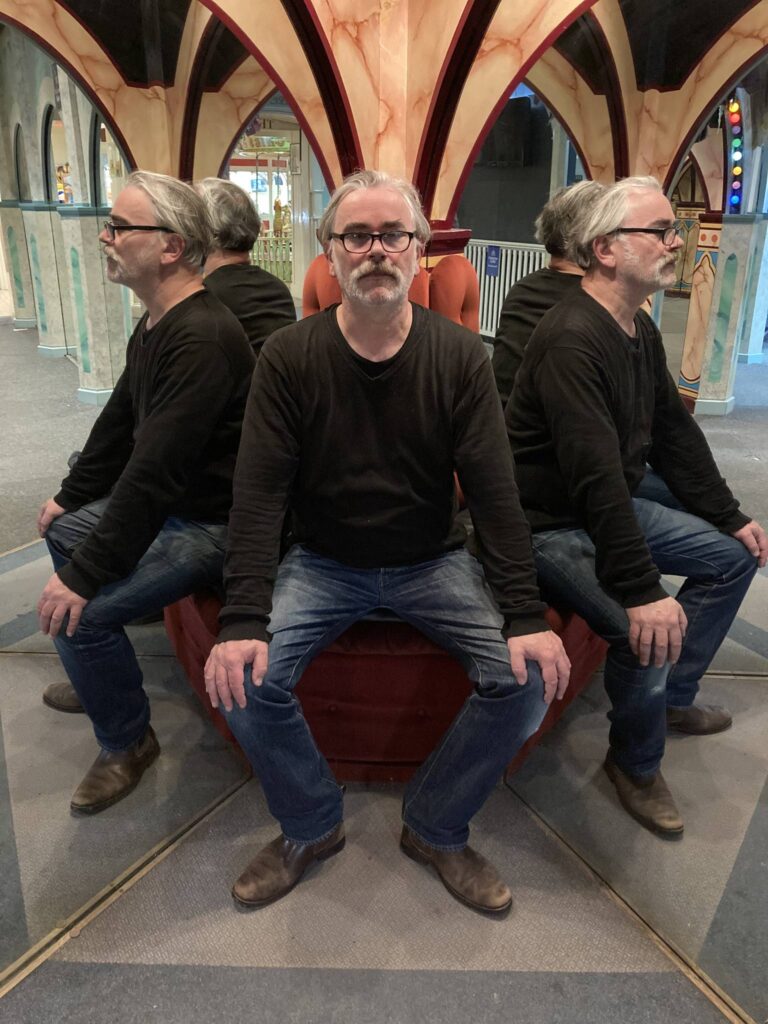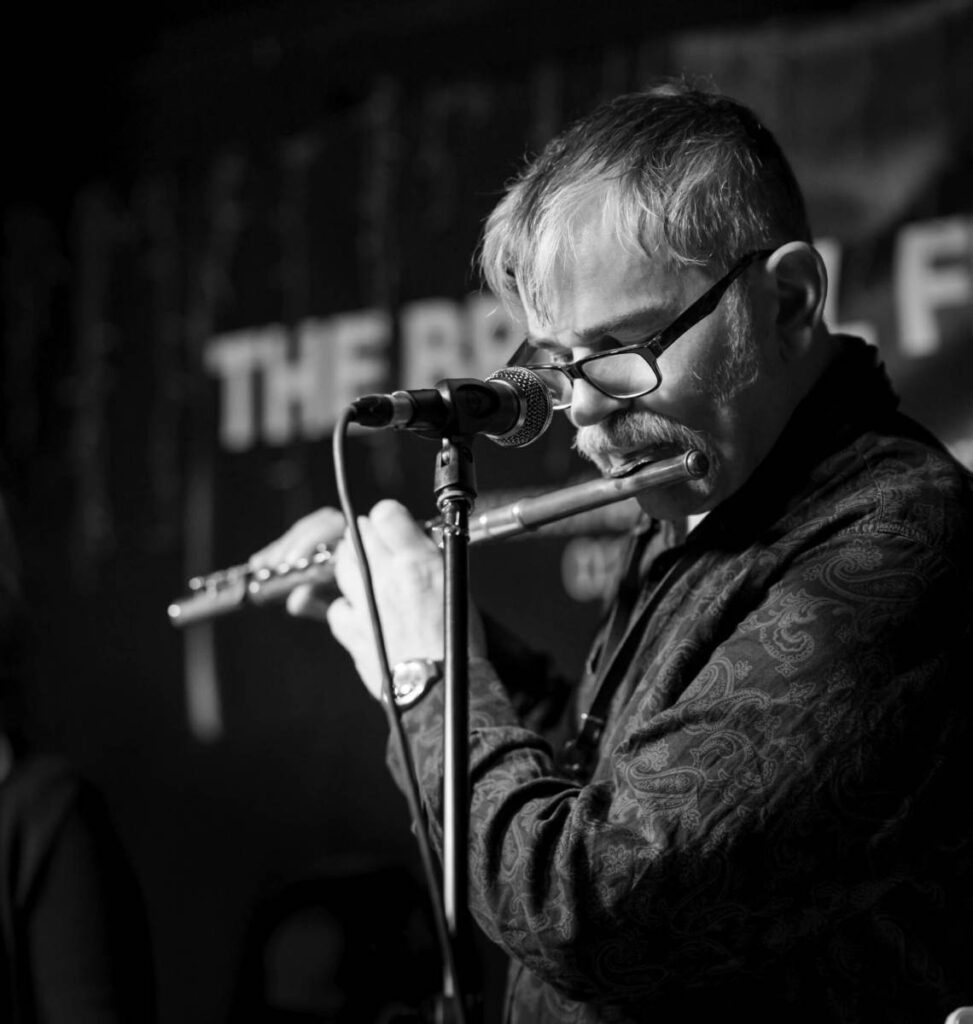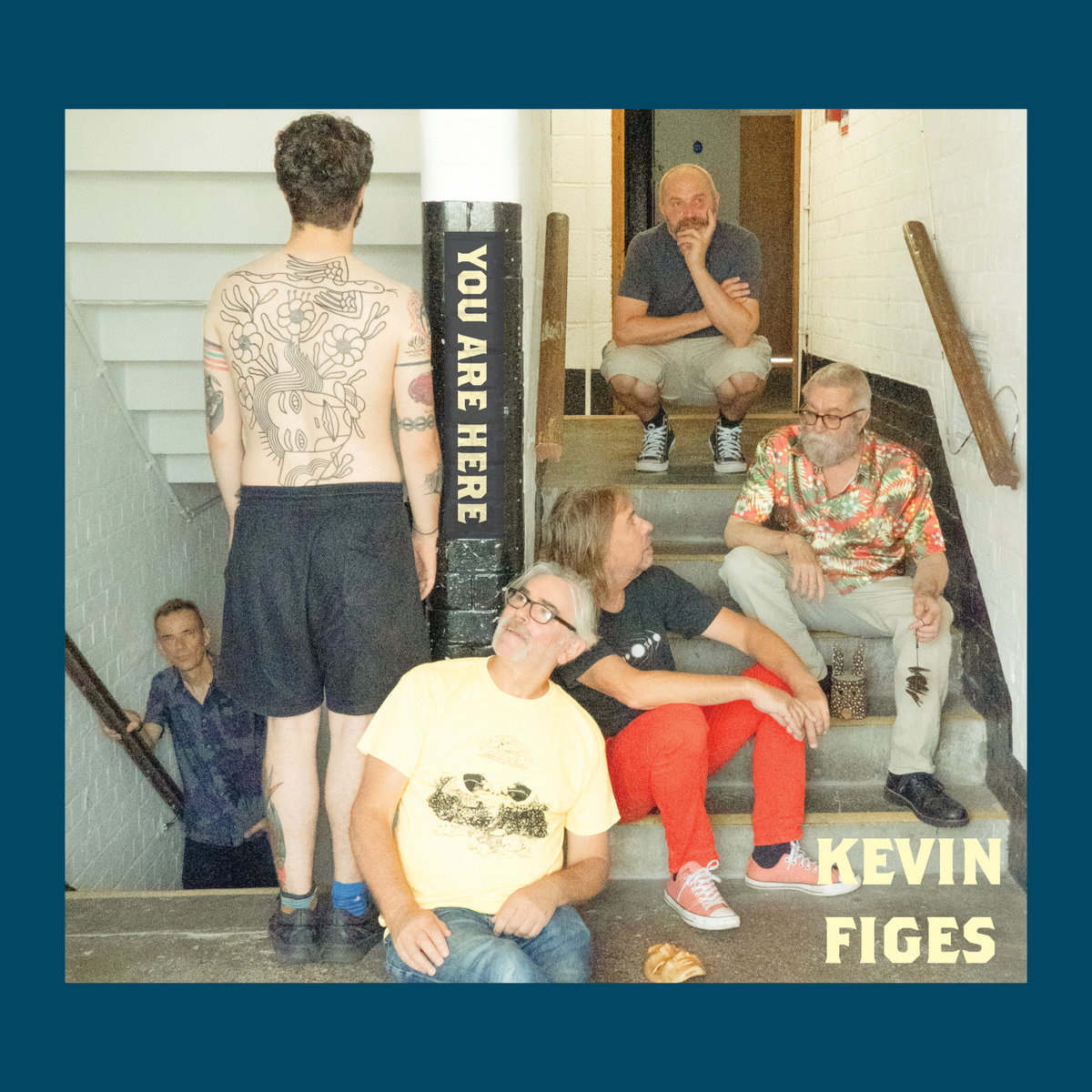Kevin Figes | Interview | New Album, ‘You Are Here’
Kevin Figes’ latest project, ‘You Are Here,’ marks a significant milestone as it debuts on Jazz In Britain’s new imprint label, Jazz Now, capturing the essence of modern British jazz with a heartfelt tribute.
The album showcases Figes’ innovative arrangements of five seminal pieces by the legendary Keith Tippett, blending them with fresh interpretations of works by Elton Dean, Harry Miller, and Dudu Pukwana. In ‘You Are Here,’ Figes not only honors his musical forebears but also revitalizes their compositions, presenting them through the lens of his sextet’s vibrant and dynamic sound.
The release is presented as a single compact disc housed in a 6-panel gatefold digisleeve, complete with a booklet of photographs and insightful liner notes from Figes and collaborator Nod Knowles. The album’s 14 tracks offer a rich tapestry of modern jazz, serving as a poignant homage to influential composers who have shaped the genre’s landscape.
Figes’ arrangements breathe new life into classic jazz standards, highlighting his ability to balance reverence with creativity in his reimagining of the original works. ‘You Are Here’ stands out for its meticulous production and the way it seamlessly blends past and present, bridging generational gaps within the jazz community. Each track on the album is a testament to Figes’ dedication to preserving the legacy of his mentors while pushing the boundaries of jazz through contemporary arrangements.
The collaboration between Figes and Knowles brings a unique depth to the album, with their combined expertise adding a personal touch to the tribute. Through ‘You Are Here,’ Kevin Figes delivers not just a collection of reinterpreted jazz classics but a celebratory and reflective journey into the heart of British jazz’s rich history.

“The music I create today comes from many different sources”
How did you first get interested in jazz music? Tell us a bit about your background and what led to the music you are creating today.
Kevin Figes: I first became interested in jazz after hearing the Soft Machine on the radio when I was a teenager. But it wasn’t until my early 20s that I fully explored Parker, Coltrane, Davis, Mingus, etc. I then became obsessed with it for many years! The music I create today comes from many different sources and is, I think, diverse. But certainly, the ‘You Are Here’ project is centered around the music of Keith Tippett and his comrades.
How did the collaboration with Jazz In Britain’s new imprint label, Jazz Now, come about?
‘You Are Here’ had a gig in Wakefield Jazz Club, and Pete Woodman and John Thurlow were in the audience. We were asked if we wanted to record an album for them. That was very nice!
What inspired you to create the You Are Here sextet and the album ‘You Are Here’?
‘You Are Here’ came about following the concerts to celebrate the life of Keith Tippett in 2021. I was the artistic director for the concerts and put together two bands to play some of Keith’s music. One was an octet, and the other was a big band. There was still clearly an appetite from the players and audience for something else going forward, so that’s when I put the ‘You Are Here’ Sextet together.
Can you tell us more about the concept of the album as a tribute to your friends, mentors, and collaborators who have passed away?
My very first mentor on my musical journey was Elton Dean. He very much got me started and introduced me to Keith Tippett. I’m pleased we have two pieces from Elton in the set. I played with Keith in some of his projects, and like Elton, he was very kind and generous to me. It certainly feels right to keep their music alive.
You’ve arranged five pieces by Keith Tippett for this album. What was your approach to reinterpreting his work?
Basically, I have transcribed (by ear!) the pieces that I most wanted to do, from their original recordings (although sometimes I have taken elements from different recordings). I have tried to keep the important essence of the pieces, but a very large amount of these pieces is improvised, so it was extremely important to have the right players in the band who are all fine improvisers. I also added some little free improvised pairings on the album, just as Keith used to do.
How did you choose the compositions by Elton Dean, Harry Miller, Dudu Pukwana, and others for this project?
The two tunes we do by Elton are both from Happy Daze by his band Ninesense. I have always loved that album. The Harry Miller piece ‘Traumatic Experience’ was arranged by Keith for big band and led me to the original small band version. ‘Mra’ by Dudu I have actually played for some years in various bigger ensembles and is just joyous!
Could you share some insights into the recording process of the album? How long did it take, and what were some memorable moments?
It took two days, recorded at J&J Studios by the very great Jim Barr. It was quite warm weather, and the three horns were in the same room as the drums! The piano and bass were in their own little booths. We were very quick and actually finished ahead of time! One of the most memorable moments was looking at Raph’s tattoo and then deciding to have that on the cover.
How did you select the musicians for the You Are Here sextet, and what was it like working with them on this project?
The musicians were chosen mainly because of their association with Keith and also because I knew they were up to it and had a lot of free improvisation experience.
Can you share some personal anecdotes or memories you have with the composers whose works you’ve included?
I’ve got quite a few! Some not repeatable. Lots of things Keith used to say come into my head from time to time. When I get bogged down in writing, I always think of one of Keith’s sayings: “If it sounds good, it is good!”
How did these musicians influence your own musical journey and style?
They influenced me a lot. I am particularly grateful for the attitude and the passion. The opportunity to play freely improvised music as well.
You studied saxophone with Elton Dean and attended the Guildhall School of Music and Drama. How did these experiences shape your career?
Elton just started me from day one. He even picked out the saxophone I should buy! He taught me chords and keys and got me off to a fantastic start. The Guildhall was many years later and was a wonderful opportunity to immerse myself in all aspects of the music. I came away thinking the mystery and wonder of music is mainly down to the human element; the technical stuff can (and should!) be broken down into simple things.
What were some key lessons you learned from your mentors, Elton Dean and Tim Garland?
Elton taught me to blow hard and not be shy! Also, a really good grounding in chords. Tim refined my blowing, made me think about all the elements of playing, and encouraged me to write.
You had a notable association with Keith Tippett. Can you tell us more about your collaborations and what you learned from working with him?
I was in Keith’s Seedbed Orchestra, a community big band which played a lot of Keith’s music and also focused on free improv. After that, I was thrilled (while I was at the Guildhall) to be asked to play in his big band Tapestry. From then on, projects would arise every year or so. Keith was very easy to work with. He cared a lot about musicians and wanted them to be well looked after. He was very intense when working on his music but knew how to relax with friends afterward! I wanted that intensity, and I also wanted to get the best out of whoever I play with.
Your albums with the Kevin Figes Quartet, such as Changing Times and Wallpaper Music, received critical acclaim. What are some highlights and challenges of leading a quartet?
The main challenge for me is getting gigs! It’s so hard… The highlights are hearing your music coming to life when the band is playing it. That’s the biggest.
How do you approach composition and improvisation in your quartet projects compared to larger ensembles?
No different really. I try and not overwrite, and improvisation always plays a big part.
“I like diversity”
You’ve been involved in various projects, including 4-Sided Triangle, an Octet, and the big band Resonation. How do you manage to balance these different musical directions and projects?
I like diversity; it keeps me alive. I can only really give one project my absolute attention at any one time, so they tend to happen one at a time!
What are some future plans for you?
Keep writing, recording, playing. And I enjoy making films too…
How would you describe your musical philosophy and approach to jazz and composition?
I try and listen to everything. Natural sounds too. People talking. I then pick out the bits which emotionally affect me and put that into both improvisation and composition (which are quite similar!).
Who are some contemporary musicians and composers that you find inspiring today?
At the moment (and this changes from month to month!), I’m really studying the music of Ennio Morricone. I’m still quite obsessed with film music and contemporary classical. I still find time for Robert Wyatt and Kevin Ayers.

What are some of the most important players that influenced your own style and what in particular did they employ in their playing that you liked?
Apart from the obvious (Parker, Coltrane, etc.), I really like the improvisational style of Chris Potter and Kenny Garrett. Clear ideas, I guess, is the main thing they employed.
Klemen Breznikar
Kevin Figes Official Website / Facebook / Instagram / Twitter / Bandcamp / YouTube
Jazz In Britain Official Website / Facebook / Instagram / Twitter / Bandcamp / YouTube




